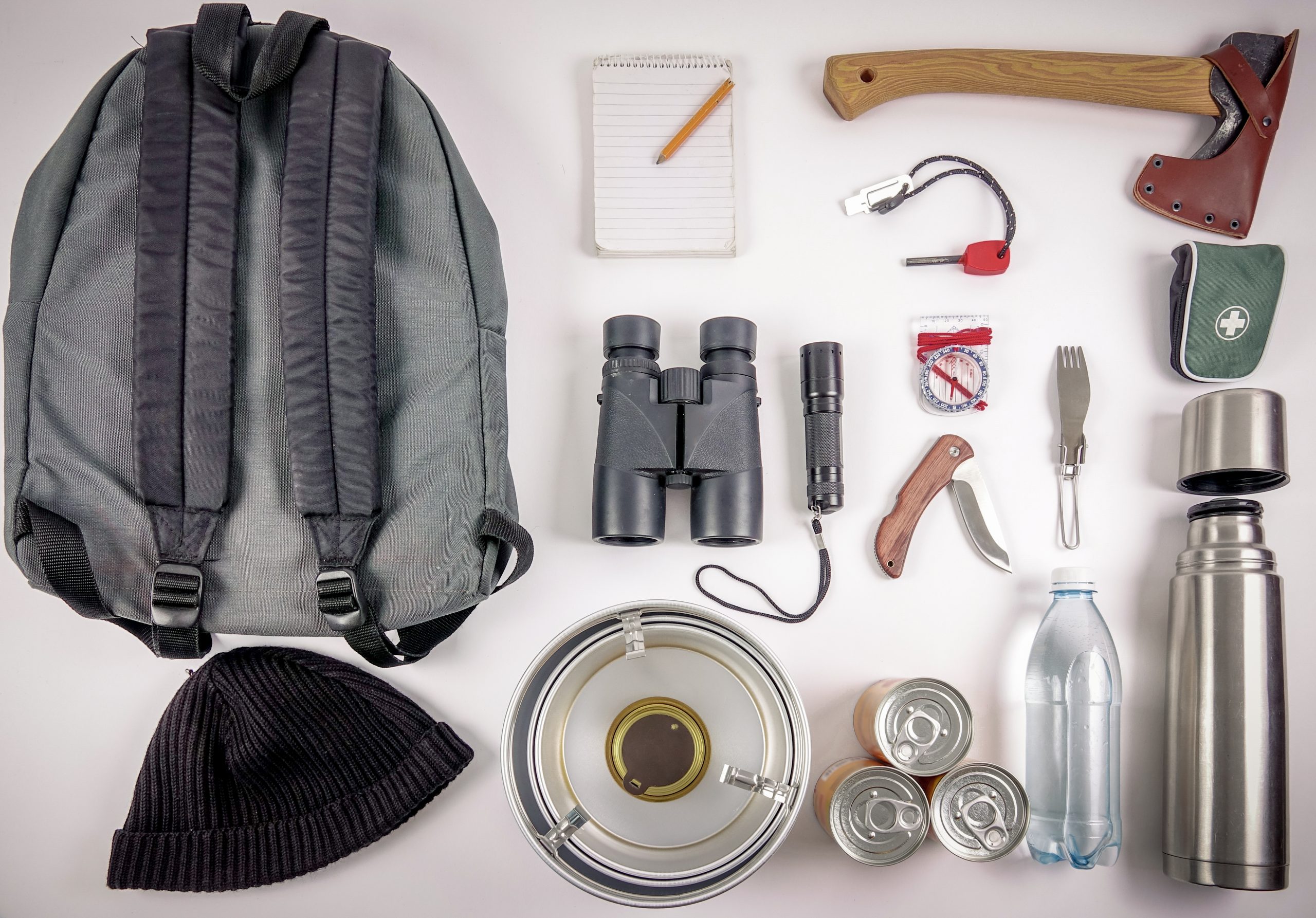Last Updated on February 1, 2023 by admin_hunter
Preppers are usually frowned upon by society because people are just scared. We all know how unpredictable the world can be and current events tell us that sooner or later, the dreaded “D-Day” will come.
Once the inevitable does happen, one of the things you are going to need is a bug out bag. If you’re wondering what to have in a bug out bag, then you’re in the right place.
We are going to talk about what bugging out is, how to prepare a bug out bag, what to put in a bug out bag, and more. By the way, this piece is going to be geared towards newbie preppers, but experienced ones may also benefit from the tips we are going to share.
What Bugging Out Is
The term bugging out originated in the military and pertains to leaving a previously safe area that is now deemed “no longer defensible”. As the term suggests, it is the action you take if you have to leave your home because you are no longer safe there, probably from an imminent threat, whether manmade or not.
You probably have a safe haven to evacuate to or you probably don’t, but you’re just sure of one thing: you have to move. Ideally, when this time comes, you have already prepared a bug out bag in advance.
Preparing a Bug Out Bag
Also known as a BOB or a 72-hour kit, a bug out bag is a pack containing everything necessary for you to survive for 72 hours in a harsh environment as you’re evacuating from a disaster. Please note that it is not a long-term survival kit, but it is still necessary if you’re going to live through the first few days you are out and exposed.
Understandably, this pack needs to be prepared for in advance. There are two types of bug out bags: a “done for you” and a “build your own”.
The first type is a readymade pack filled with supplies that the manufacturer deems vital. We, however, prefer the second type. That’s because each family or each person has different needs and preferences.
If you’re not sure where to start, we are going to share a quick checklist on things you can include in your bug out bag.
What to Have in a Bug Out Bag
Let us cover the basic needs first. That would be air, water, food, and shelter. Having said that, you will need the following:
- An air mask: Plus points if you can pack an air filtration mask. This will prepare you for circumstances when breathing is difficult, or worse, deadly.
- A water bladder: This is not only lighter than lugging around water bottles, but it will also allow you to ration out water consumption through tiny sips.
- Water purification tablets: Of course, your water supply is bound to run out sooner or later, so having these tablets handy is a must. You might want to take a piece of tarp too that can serve as a rain collector, as well as a pot for boiling out impurities from the water you’ll collect.
- Rations: MREs and dehydrated food items are good to pack as well. Don’t forget to include meal sh083-20nt bars too. They are small and can easily be tucked into small packets.
- A tent and a sleeping bag: You must include a makeshift shelter and a sleeping bag to protect you from the elements.
We now have the basics covered. At least from here, we’re sure that you will be able to survive the next few days already. You’ll notice, though, that your bug out bag is not quite there yet. Thus, here are the other things we recommend you to throw in your bag to boost your level of preparedness:
- Extra clothing: This will highly depend on the circumstances and weather that you’re preparing for. For instance, if you’re expecting a lot of rain, then a waterproof jacket is an absolute must. On the other hand, it won’t be enough to provide you proper insulation if you’re going to brave negative degrees.
- A firestarter: Speaking of insulation, the best way to get much-needed warmth is still by building a fire. Not only that but a fire can also help you to cook food, purify water, and even send out a signal when necessary. We recommend getting a water-resistant firestarter.
- A flashlight: Some people prefer lamps as a light source, but never underestimate the power of a quality pocket flashlight. Get one that comes with a clip so that you can easily attach it to your cap and turn it into a makeshift headlamp.
- Navigation tools: A GPS can be helpful, but you can’t really rely on anything that is powered by electricity for long. That’s why we still favor the good old fashion compass, along with the map of your immediate location.
- A knife: This is already a given. You can use it for anything: cooking, cutting, or even defending yourself. A multi-tool is really nifty to have as well, but we favor having a sharp knife over having a multi-tool with a small and dull one.
- A first-aid kit: Finally, you must never forget to pack a first-aid kid in your bug-out bag. Pack the usual things in there such as a wound-cleaning solution and bandages, something that you can use to stitch wounds up, a tourniquet, anti-bacterial wipes, but never forget to pack your prescription meds. Take as much as you can since you will never know when you’ll be able to get your hands on the exact medicine you need.
And that’s it! There are still a lot of things that you can add to your bug out bag but the checklist we provided above is a pretty solid place to start.
Conclusion
As a parting gift, we’re going to share with you the rule of thirds. This is something that you can also keep in mind as you’re building your bug out bag.
Remember: you can only survive without air for three minutes, you can only survive without a decent shelter in a harsh environment for three hours, you can only survive without clean water for three days, and you can only survive without any food or nourishment for three weeks. Stay safe out there!

